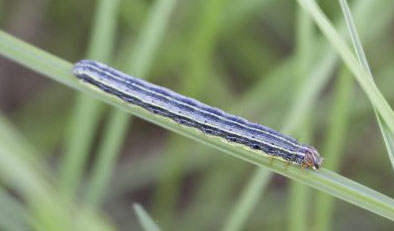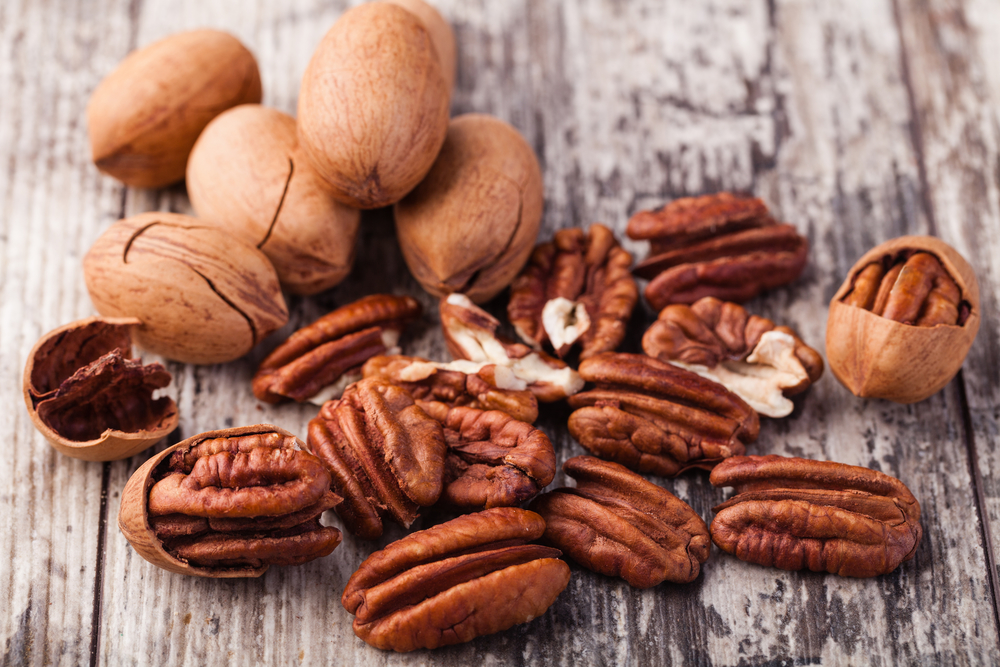By Clint Thompson Summer rains and increased pest infestations in the early fall created less-than-ideal conditions for producing hemp in Alabama. Katelyn Kesheimer, Auburn University Assistant Professor and Extension Specialist, details some of the challenges hemp farmers are facing amid fall harvests. “People are dealing with caterpillars. We have corn earworms, yellow-striped armyworms, loopers, fall armyworms; I mean you name …
Fall Armyworm Infestations: Be Sure to Scout Against Insect Pressure
High pest pressure in Alabama means vegetable and specialty crop producers needs to stay vigilant in their scouting especially as fall crops like brassicas are being planted. Fall armyworm moths continue to be very active throughout Alabama. They have almost doubled in numbers since August 2021 and are more than five times the numbers from 2020. According to the Alabama …
Will Pecans Be Ready for Chinese New Year?
By Clint Thompson A delay in pecan production this year could have a ripple effect that costs growers the opportunity to take advantage of the exports market to China. There is renewed optimism from Southeast producers about this year’s harvest season. It stems largely from the fact that China has increased its interest in purchasing U.S. pecans. However, supply may …
Alabama Extension Provides Tips for Controlling Pestalotia in Strawberries
Alabama Extension provides tips to strawberry growers looking to protect their crops this year against Pestalotia, a leaf spot and fruit rot disease caused by the fungus Neopestalotiopsis. The disease that has recently wreaked havoc on strawberry producers in Florida and Georgia is a threat to Alabama strawberries. It affects the plant roots, crown, leaves and fruit and eventually leads …
Weed Control Essential for Container Nurseries
By Clint Thompson It is essential for container nurseries to keep plants weed free from start to finish. According to Alabama Extension, weeds can reduce the growth and marketability of nursery crops. Jeremy Pickens, Alabama Assistant Extension Professor in Horticulture at Auburn University, says when selling ornamentals, “aesthetics is everything.” “There’s really no margin for error. You’ve got to have …
All Things Considering: Georgia Pecan Crop Good Amid High Scab Disease Pressure
By Clint Thompson The earliest pecan varieties are a couple of weeks away from harvest. As Georgia growers and industry leaders take stock of this year’s crop, fortunately, it is not as bad as it could have been, says Lenny Wells, University of Georgia Cooperative Extension pecan specialist. “It’s certainly worse than we’d like it to be. Really, considering all …
USDA NASS to Issue Pecan Survey
The USDA National Agricultural Statistics Service (NASS) will soon be sending pecan producers a survey to forecast pecan production for the upcoming season. Growers will have the option to respond to the survey online. Producers who have not responded by Sept. 29 will be contacted for a telephone interview by a NASS representative. Survey results will be published on Oct. …
Lingering Impact: Pecan Production in Two Alabama Counties Remains Low Following Hurricanes Sally and Zeta
By Clint Thompson The impact from a pair of devastating hurricanes that wiped out pecan production in two Alabama counties last year is still being felt today. Bryan Wilkins, Alabama Extension Research Associate, discusses what percentage of this year’s pecan crop should be expected in Baldwin and Mobile counties. “Baldwin and Mobile counties are pretty slack. Sally hit a year …
Moisture Available for Alabama Strawberry Growers Preparing to Plant Upcoming Crop
By Clint Thompson Excessive rainfall this summer has provided much-needed moisture for North Alabama strawberry producers preparing to plant this year’s crop, says Eric Schavey, Regional Extension agent in Northeast Alabama. “We’ve got some good moisture now for working ground up and getting ready to lay plastic for strawberries. We’re kind of liking that,” said Schavey, who’s responsible for Blount …
Wet Weather: Central Alabama Having Increased Plant Disease Pressure
By Clint Thompson Like other areas in the Southeast, central Alabama was not immune to the impact felt from a saturated summer. According to David Lawrence, regional Extension agent for commercial horticulture in middle Alabama, the wet weather led to disease issues in multiple crops. “We saw a lot of bacterial spot on peaches this year, a lot more than …











